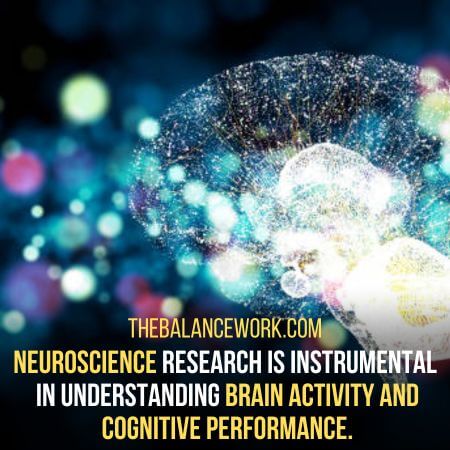Highest IQ jobs require a high level of intellectual prowess and analytical skills. These jobs involve complex problem-solving tasks, data analysis, or creative thinking.
In this article, we will explore some highest IQ jobs that require exceptional cognitive abilities and offer lucrative career opportunities for those who possess them.
What Are Some 12 Highest IQ Jobs?
This discussion focuses on the highest IQ professions, which include doctors, university professors, attorneys, engineers, and scientists.
These professions require a high level of intelligence and analytical skills to succeed in their respective fields.
Research suggests that individuals with higher IQ scores tend to perform better in these occupations due to the complexity and demand for critical thinking.
1. Doctors:
Medical doctors are among the most intellectually demanding professions.
They require problem-solving skills, critical thinking, and specialized medical knowledge.

They are crucial in advancing medical research and healthcare technology while providing essential patient care.
Here are some areas where doctors need to demonstrate their high intelligence:
1. Medical advancements: Doctors must stay up-to-date with medical advancements and integrate new technologies into their practice to improve patient outcomes.
2. Surgical techniques: Surgeons require exceptional cognitive abilities to perform complex procedures that involve precision and accuracy.
3. Healthcare technology: With the rise of electronic health records (EHR), doctors must possess the technical aptitude to navigate computer systems efficiently while ensuring patient privacy.
4. Patient care: Effective communication skills are essential for doctors to provide comprehensive care by explaining medical procedures, answering questions, and interpreting test results.
University professors also belong to the highest IQ professions due to their extensive education and expertise in their respective fields.
2. University Professors:
University professors are esteemed academic community members whose expertise and contributions to research and education inspire admiration and respect.
Educators are responsible for designing curricula, developing teaching methods, and engaging students in meaningful learning experiences.
They also serve as mentors to students and junior faculty members, guiding them toward success in their academic pursuits.
In addition to their roles as educators, university professors are also heavily involved in academic research.
Through their research endeavors, they contribute to advancing knowledge in their respective fields of study.
Faculty development is another important aspect of a professor’s job responsibilities.
This entails participating in professional development activities that help improve their instructional skills and stay current with higher education trends.
3. Attorneys:
Attorneys are legal professionals who provide legal advice and represent clients in court proceedings.
They utilize their knowledge of the law to protect the rights and interests of their clients.

A career as an attorney requires extensive education and training in legal expertise, courtroom tactics, legal research, litigation skills, and legal strategy.
Attorneys must have a deep understanding of the law and its application to various situations, as well as strong critical thinking skills to develop effective arguments.
Successful attorneys also possess excellent communication skills to effectively convey complex legal concepts to their clients and persuade judges or juries.
They must be able to conduct thorough research on case-related laws and regulations.
They analyze evidence carefully, draft clear and concise legal documents such as contracts or pleadings, and negotiate with opposing counsel.
Furthermore, they need to stay updated with changes in the law that may impact their cases.
4. Engineers:
Engineering is a profession that requires a strong aptitude for problem-solving and innovation, as well as a deep understanding of mathematics and science.
Engineers use their technical expertise to design solutions to complex problems and develop innovative solutions to design challenges.
They work on projects ranging from the construction of buildings, bridges, and roads to developing advanced technology such as aerospace, medicine, and energy.
Problem-solving skills are essential for engineers who must find creative solutions to design challenges while working with time and budget limitations.
Engineers must be able to think critically and creatively when designing new technologies or improving existing ones.
They must also be able to communicate complex ideas effectively with other professionals in their field.
With these skills, engineers can significantly contribute to society by advancing technology and improving people’s lives.
Scientists also play an important role in advancing technology through research and experimentation.
5. Scientists:
Scientific research and experimentation have paved the way for numerous technological advancements that have greatly improved people’s lives.
Neuroscience research has been particularly instrumental in understanding brain activity and cognitive performance, which are key factors in determining intelligence.
IQ tests, which measure various aspects of cognitive ability, have been used to identify individuals with high levels of intelligence.
Intelligence genetics is another area of scientific study that has shed light on the role genes play in determining intelligence.

Studies have shown that certain genetic variations can influence cognitive abilities such as memory, attention, and reasoning skills.
These findings have important implications for fields such as education and psychology, where understanding individual differences in intelligence is crucial.
Moving forward, material science and engineering specialists will be discussed as another group of professionals who typically score high on IQ tests. This is one of the best jobs with highest IQ.
6. Specialists In Material Science And Engineering:
Professionals in the field of material science and engineering are known for their problem-solving skills and innovative approaches to designing new materials.
They work with various materials, such as metals, ceramics, polymers, and composites.
They create products that have improved properties compared to traditional materials.
Their expertise is essential in nanotechnology applications, composite materials research, renewable energy sources, biomedical engineering advancements, and aerospace innovations.
Contributions Made By Scientists:
The table below showcases some examples of the contributions made by specialists in material science and engineering in these industries:
| Industry | Contribution | Example |
|---|---|---|
| Nanotechnology applications | Development of new nanomaterials with unique properties | Carbon nanotubes used in electronics |
| Composite materials research | Design of lightweight yet strong composites for various uses | Fiberglass-reinforced plastic used in automotive parts |
| Renewable energy sources | Improvement of solar panel efficiency through material selection | Thin-film photovoltaic cells using cadmium telluride |
As technology continues to advance rapidly across all industries, the role of specialists in material science and engineering becomes increasingly important.
Their ability to develop novel solutions for complex problems enables them to contribute significantly to sustainable progress across different sectors.
7. IT Experts:
Information technology (IT) has become an integral part of modern society and has number of high IQ jobs.
It shapes how we live and work and requires experts to navigate the rapidly evolving technological landscape.
As the demand for skilled IT professionals grows, so do their salaries.
Tech industry trends also play a significant role in shaping the job market for IT experts.

Cybersecurity challenges are becoming more prevalent as companies rely heavily on digital infrastructure to business needs
This trend has increased the demand for cybersecurity professionals who can safeguard sensitive information from malicious attacks.
Additionally, programming languages in demand constantly change as new technologies emerge in IT.
Experts who stay abreast of these developments will be better equipped to tackle emerging technologies in IT and remain competitive in the job market.
As we discuss financial professionals, staying current with industry trends is crucial for success.
8. Financial Professionals:
The financial industry is an ever-evolving landscape that demands expertise and adaptability from its practitioners.
Financial professionals manage and analyze financial data, create financial strategies, and advise clients.
These professionals work in various settings, including banks, investment, insurance, and accounting firms.
To excel as a financial professional, individuals must possess certain educational qualifications such as a degree in finance or accounting.
In addition to the necessary educational background, job requirements include strong analytical skills, attention to detail, and excellent communication skills.
The salary range for financial professionals varies based on experience level and job title.
9. Real Estate Agents:
One must possess specific knowledge and expertise to excel as a real estate agent, which can lead to achieving success and helping clients find their dream homes.
Real estate agents must have sharp negotiation tactics and marketing strategies to sell properties effectively.
They also need to build and maintain strong client relations and possess fundamental knowledge of property management and market analysis.
Negotiation tactics are crucial for real estate agents when buying or selling properties.
These professionals must communicate effectively with all parties involved in the transaction while ensuring their client’s interests are protected.
Marketing strategies play an equally important role in the success of real estate agents.
They need to attract potential buyers or tenants through various advertising methods.
With good client relations skills, real estate agents can foster long-term relationships with clients who may require their services again.
Property management knowledge is necessary for managing rental properties, while market analysis helps determine property values accurately.
10. Sales Experts:
Sales experts utilize negotiation tactics, marketing strategies, and strong client relations to sell products effectively.
These professionals typically work in various industries, including retail, real estate, and finance.

The role of a sales expert involves understanding customer psychology and utilizing sales strategies to influence purchasing decisions.
Effective communication techniques are also crucial for building client relationships and establishing trust.
Sales team management is another important aspect of the job.
Sales experts must be able to motivate their team members while holding them accountable for meeting sales targets.
They must also conduct market analysis to identify trends in consumer behavior and adjust their strategies accordingly.
Common Sales Strategies:
The table below showcases some common sales strategies professionals may use.
| Sales Strategies | Communication Techniques | Customer Psychology | Sales Team Management |
|---|---|---|---|
| Cross-selling | Active Listening | Social Proof | Goal Setting |
| Upselling | Persuasion | Scarcity | Performance Tracking |
| Networking | Empathy | Anchoring | Coaching |
| Product Positioning | Storytelling | Reciprocity | Incentives |
Cross-selling involves recommending complementary products or services to customers who have already purchased.
At the same time, upselling refers to persuading customers to upgrade or add additional features or options during the buying process.
Networking can help build new relationships with potential clients.
Product positioning can help highlight the unique value proposition of a particular offering compared to competitors’ offerings.
Effective communication is key when it comes to implementing these strategies successfully.
Active listening involves paying close attention to what customers say and responding thoughtfully based on their needs and preferences.
Persuasion can involve storytelling or other techniques that tap into customers’ emotions to sway their decision-making.
Understanding customer psychology is also important for anticipating and addressing objections or concerns during sales.
Finally, effective sales team management requires setting clear goals, tracking performance metrics, and providing coaching and incentives to motivate the team.
11. Political Scientist:
Political scientists are professionals who study and analyze political systems, policies, and behavior.
They seek to understand and explain the complexities of political structures, institutions, and processes that shape our societies and governments.
Through their research, political scientists contribute to the knowledge and understanding of politics.
They provide insights into important issues and challenges faced by nations worldwide.
Political scientists employ a range of methodologies to examine political phenomena.
They conduct extensive research, analyze data, and often develop theories and models to explain political behavior and outcomes.
They study various aspects of politics, including international relations, comparative politics, political theory, public administration, and public policy.
In their work, political scientists explore elections, political ideologies, governmental systems, public opinion, political parties, social movements, and policy formulation.
They may also specialize in specific regions or countries, examining the political dynamics and unique challenges within those contexts.
Political scientists often work in academic settings, conducting research and teaching at universities and colleges.
They publish their findings in scholarly journals and contribute to academic debates and discussions.
They may also engage in fieldwork, interviews, and surveys to collect data and gain insights into political processes.
12. Pharmacologist:
A pharmacologist is a professional who specializes in the study of drugs and their effects on living organisms.

They investigate the interaction between drugs and biological systems.
They focus on how drugs are developed, their work, safety profiles, and their impact on human health.
Pharmacologists play a crucial role in advancing medical knowledge and ensuring the safe and effective use of medications.
One of the primary responsibilities of a pharmacologist is to research drugs.
They design and carry out experiments to examine the following:
– Pharmacokinetics (absorption, distribution, metabolism, and excretion)
– Pharmacodynamics (effects and mechanisms of action) of various drugs.
This research helps us understand how drugs are processed in the body, how they exert their therapeutic effects, and how they interact with other substances.
Pharmacologists also contribute to the development of new drugs.
They work alongside pharmaceutical companies, academic institutions, and research organizations in drug discovery and development.
They collaborate with chemists, biologists, and clinicians to identify potential drug candidates, assess their efficacy and safety profiles, and optimize their therapeutic benefits.
Another important aspect of a pharmacologist’s work is evaluating the safety and efficacy of drugs.
They conduct preclinical and clinical trials to assess the potential risks and benefits of new medications.
By studying the effects of drugs on animal models and human subjects, pharmacologists gather data to determine the appropriate dosage, potential side effects, and drug interactions.
Pharmacologists also contribute to the field of personalized medicine.
By studying the genetic and physiological factors that influence drug response, they aim to optimize drug therapy for individual patients.
This involves identifying biomarkers to predict drug efficacy and tailoring treatment plans accordingly.
In addition to research, pharmacologists may also be involved in teaching and education.
They share their expertise with students, healthcare professionals, and the general public to promote an understanding of pharmacology and safe medication practices.
Conclusion:
In conclusion, high-IQ jobs demand exceptional cognitive abilities beyond the typical intelligence levels required for most professions.
Individuals who excel in these fields possess unique analytical skills and extensive knowledge in specific areas such as mathematics or physics.
Despite being challenging professions requiring a lot of hard work and dedication, they offer immense opportunities for personal growth and professional development.
They also contribute significantly to society’s advancement through innovation and research.
- 7 Great Signs Your Boss Wants to Help You - October 8, 2023
- How To Explain Dropping Out Of Law School? Detailed Guide - September 6, 2023
- 10 Reasons Employees Get Fired in Workplace - August 27, 2023
